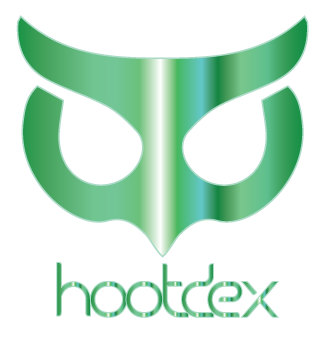Overview of Decentralized Finance (DeFi)
Decentralized Finance, or DeFi, represents a revolutionary shift in the financial sector, utilizing blockchain technology to offer financial services without relying on traditional intermediaries like banks and brokerages. DeFi aims to democratize finance by making financial products and services accessible to anyone with an internet connection. This knowledge page provides an overview of the value of DeFi, its growth potential, methods of fraud prevention, use cases, and future applications.
Value of Decentralized Finance
- Accessibility
- Global Reach: DeFi platforms are accessible to anyone with an internet connection, regardless of geographic location. This inclusivity helps bridge the gap for unbanked and underbanked populations.
- 24/7 Availability: Unlike traditional financial institutions, DeFi platforms operate 24/7, allowing users to conduct transactions at any time.
- Transparency
- Open Source: DeFi protocols are typically open-source, meaning the code is available for public scrutiny. This transparency builds trust and allows for continuous improvement by the community.
- Public Ledger: Transactions on DeFi platforms are recorded on a blockchain, providing a transparent and immutable record of all activities.
- Control and Ownership
- Self-Custody: Users maintain control over their assets through digital wallets, reducing reliance on third-party custodians and enhancing security.
- Smart Contracts: Automated and self-executing contracts with terms written in code enable trustless transactions without intermediaries.
- Cost Efficiency
- Lower Fees: By eliminating intermediaries, DeFi reduces transaction and operational costs, making financial services more affordable.
Growth Potential
- Market Expansion
- Increasing Adoption: As awareness and understanding of DeFi grow, more users and institutions are expected to adopt DeFi platforms, driving market expansion.
- Institutional Interest: Financial institutions are exploring DeFi to enhance their services and reduce costs, further fueling growth.
- Technological Advancements
- Scalability Solutions: Innovations in blockchain scalability, such as Layer 2 solutions and sharding, are addressing transaction speed and cost issues, making DeFi more practical for widespread use.
- Interoperability: Cross-chain solutions are enabling different blockchain networks to interact, expanding the functionality and reach of DeFi applications.
- Regulatory Developments
- Evolving Frameworks: As regulatory frameworks develop, DeFi platforms will gain more legitimacy and stability, encouraging broader adoption.
Prevention of Fraud
- Smart Contract Audits
- Security Audits: Regular audits of smart contract code by third-party security firms help identify and mitigate vulnerabilities.
- Decentralized Governance
- Community Oversight: Many DeFi projects implement decentralized governance models, allowing the community to participate in decision-making processes and reducing the risk of fraud.
- Insurance Protocols
- DeFi Insurance: Specialized insurance protocols offer coverage against smart contract failures, hacks, and other risks, providing an additional layer of security.
- Regulatory Compliance
- KYC/AML Procedures: Some DeFi platforms incorporate Know Your Customer (KYC) and Anti-Money Laundering (AML) procedures to prevent illicit activities and enhance trust.
Use Cases
- Lending and Borrowing
- Decentralized Lending Platforms: Users can lend their assets to earn interest or borrow assets by providing collateral, without the need for traditional banks.
- Decentralized Exchanges (DEXs)
- Peer-to-Peer Trading: DEXs facilitate direct trading of cryptocurrencies between users, offering greater privacy and control over funds.
- Stablecoins
- Price-Stable Cryptocurrencies: Stablecoins are pegged to fiat currencies or other assets, providing a stable medium of exchange and store of value within the DeFi ecosystem.
- Yield Farming and Staking
- Earning Rewards: Users can earn rewards by providing liquidity to DeFi protocols or staking their assets in various platforms.
- Insurance
- Risk Management: DeFi insurance protocols offer coverage for smart contract risks, hacks, and other uncertainties.
- Asset Management
- Robo-Advisors: Automated investment strategies and portfolio management services are available on DeFi platforms, making sophisticated financial tools accessible to a wider audience.
Future Applications
- Real-World Asset Tokenization
- Tokenized Assets: Real estate, stocks, and other traditional assets can be tokenized and traded on DeFi platforms, increasing liquidity and accessibility.
- Decentralized Identity and Credit Scoring
- Digital Identities: DeFi can facilitate the creation of decentralized digital identities and credit scoring systems, enabling trust and financial inclusion.
- Cross-Border Payments and Remittances
- Efficient Transfers: DeFi platforms can offer fast and low-cost cross-border payments, benefiting remittance services and international trade.
- Decentralized Autonomous Organizations (DAOs)
- Governance and Collaboration: DAOs enable decentralized governance and collaboration, allowing for more democratic decision-making in various sectors.
- Integration with Traditional Finance
- Hybrid Models: As DeFi matures, integration with traditional financial systems will create hybrid models that leverage the strengths of both centralized and decentralized finance.
Decentralized Finance (DeFi) is revolutionizing the financial industry by providing more accessible, transparent, and cost-efficient financial services. Its growth potential is immense, driven by technological advancements, increasing adoption, and evolving regulatory frameworks. While challenges such as fraud prevention remain, innovative solutions and community governance are enhancing security and trust. The diverse use cases and future applications of DeFi underscore its transformative impact, making it a key driver of financial innovation and inclusion in the years to come.
